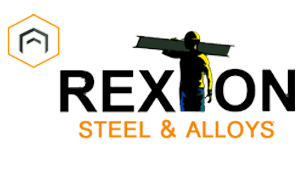When it comes to high-precision industrial materials, DSQ Plates (Dead Soft Quality Plates) stand out for their exceptional formability, weldability, and surface finish. Engineered with low carbon content, these plates are ideal for deep drawing and fabrication processes, making them widely used in auto parts, electrical panels, furniture, and white goods. Their reliability stems from a well-balanced chemical composition that includes carbon for strength, manganese for wear resistance, silicon for improved hardness, and controlled amounts of sulfur and phosphorus to maintain durability. The advantages of DSQ Plates are evident in their superior strength, high durability, corrosion resistance, and versatility, making them a top choice for construction, shipbuilding, heavy machinery, and pressure vessels. In this blog, we’ll explore what makes DSQ Plates a preferred solution across demanding industrial environments.
What are DSQ Plates?
DSQ Plates, or Dead Soft Quality Plates are mild steel plates with superior formability, weldability and surface finish. The plates are manufactured with low carbon content, which makes them highly ideal for deep drawing and other fabrication techniques that involve high shaping without cracking or breaking. DSQ Plates find extensive use in manufacturing auto parts, electrical panels, furniture and white goods. Their smooth finish and uniform mechanical properties make them well suited for applications where surface quality and precision matter.These plates are easy to work on using machines and may be painted or coated when necessary, further contributing to their utility across a range of industrial and business applications.

DSQ Plates Chemical Composition
The DSQ plates have the right chemical composition to provide maximum strength, durability, and performance.The main elements found in DSQ plates are:
- Carbon (C):Usually found in a controlled quantity, carbon enhances the hardness and tensile strength of the plate. It enhances the strength of the material and DSQ plates become appropriate for high stress applications.
- Manganese (Mn): This element increases the hardness and strength of the steel because it improves wear resistance. It prevents brittleness at elevated temperatures, so it contributes to the toughness of the plate.
- Silicon (Si): Silicon enhances the hardness and strength of the steel, particularly under elevated temperature conditions. It serves as a deoxidizer thereby facilitating the entire manufacturing process and minimizing impurities within the steel.
- Sulfur (S): Usually maintained low in DSQ plates sulfur can adversely affect the strength of the steel. But maintaining a check on the sulfur content helps the material keep its strength intact without any weakness or cracks.
- Phosphorus (P): Similar to sulfur, phosphorus is found in trace amounts in DSQ plates because it influences the toughness of the material when in excess.The regulated occurrence of phosphorus ensures the stability of the strength and durability of the plates.
Advantages of DSQ Plates
DSQ plates have several benefits, and they are therefore in great demand in industries where strength, durability, and reliability are of prime importance. Some of the benefits are:
- Improved Strength: DSQ plates have great tensile strength, owing to their chemical makeup and processes involved in manufacturing them. These factors combine to produce a strong product with resistance to weight and pressure.
- High Durability:DSQ plates are made to withstand tough climatic conditions, such as high temperatures, humidity and mechanical stress. This makes it last longer and requires less maintenance hence a cost-saving solution in the long term.
- Corrosion Resistance: The steel employed in DSQ plates has good corrosion resistance, which is essential in environments exposing the material to chemicals, moisture, or saline conditions. It is particularly vital for the applications of shipbuilding and offshore platforms.
- Versatility: DSQ plates are versatile in that they can be applied in various industries, such as construction, shipbuilding, and heavy equipment production. Their capacity to withstand the harsh conditions of these industries makes them a versatile option.
Key Applications of DSQ Plates
The novel properties of DSQ plates enable their applications in multiple industries. Below are some of the main uses:
- Construction: DSQ plates are mainly employed in constructing big structures such as bridges, skyscrapers, and factories. Their tensile strength guarantees that these structures can carry heavy loads and endure environmental conditions such as wind, rain and temperature changes.
- Shipbuilding: In the shipbuilding sector DSQ plates are utilized for building ships and offshore platforms. The corrosion resistance of the plates is critical in ships that run in saltwater environments such that they become durable and resilient over time.
- Heavy Machinery: DSQ plates are also employed in the manufacture of heavy machinery such as cranes, bulldozers, and excavators. The strength and toughness of DSQ plates assure that these machines can perform harsh operations and withstand wear and tear.
- Pressure Vessels: DSQ plates are generally utilized in the production of pressure vessels utilized by industries such as oil and gas, petrochemical and power plants.Their high-pressure resistance makes them suitable for use in these processes.
Conclusion
DSQ Plates are a critical element in the structural and industrial engineering world, providing an exceptional combination of strength, flexibility, and corrosion resistance. Their superior chemical composition and outstanding mechanical properties make them suitable for high-performance applications in industries such as construction, shipbuilding, and heavy machinery. Whether it’s forming the backbone of a bridge or powering the durability of pressure vessels, DSQ plates deliver long-term reliability and cost efficiency. With their superior quality and adaptability, DSQ Plates stand out as an indispensable material for projects that demand strength, precision, and endurance under extreme conditions.

